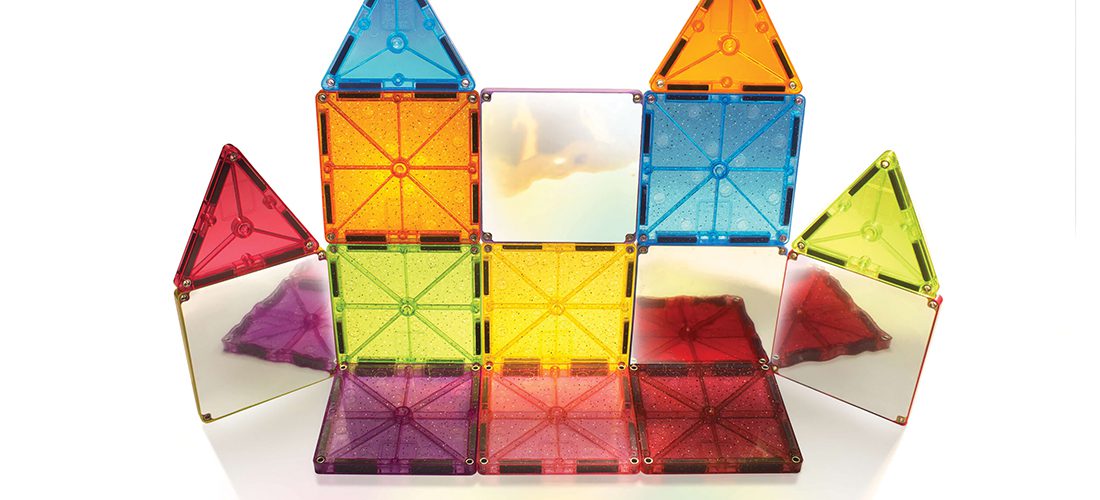The quarantine diaries
March 31, 2021

The roller coaster of pandemic parenting
by Caroline Langerman
It was nice how my husband started to fill up a coffee mug from our cabinet, instead of sprinting out the door to chase down his mobile Starbucks order. Now that we were quarantined, we were seeing each other every time he came out of his little work-from-home office toward the Nespresso machine, like a bear to his blueberry bush. The Italian names of the coffee capsules found their way down to the carpet where our two oldest kids played house. “Are you having Odacio or Melozio?” they asked their imaginary friends, absentmindedly, while pushing their trains.
Babysitters weren’t hired, and therefore they weren’t expensive. I nursed our four-month-old on demand, which, with the outside world not calling me, no longer felt demanding. As if she could sense my right-thereness, my literal never-going-anywhere-ness, the baby started to sleep through the night — long, mummified stretches of slumber from which I woke her after 12 hours. “Wow,” I thought, wondering how much yeoman’s work could be packed into this quarantine. “Too bad we didn’t have twins.”
When I canceled the housekeeper, my son begged to push the vacuum cleaner. “Ok,” I said, “but first you need to pick up every single Magna-Tile.” He got to work fast, the little magnets clapping together rapidly.
“This kind of works,” I said to my husband, “as long as you aren’t trying to do anything.” And I meant anything. Like showering. Answering the telephone. I thanked God I didn’t have to dial in to board meetings or build financial models or answer to customers. But I did have three kids under 5. “Radical acceptance” — a friend had introduced me to the term. I wished I could package it up and sell it, that’s how much it helped me as I watched my son complete a remote preschool project of gluing 16 feathers onto a paper parrot, his botched little bangs blowing in the breeze, while I prepared meals and changed diapers for his sisters. I washed my hands until they bled.
North Carolina was giving us vest weather, with temperatures in the high 60s. In late spring, we were eating outside nearly every night. After hamburgers one evening, my husband asked my son if he wanted to take a jog after dinner, something he could do because he wasn’t wearing wool pants, or laid over in a hotel, or getting snagged on his way to the elevator. “Good for the lungs,” he said to me over their heads. I didn’t mind that they left the dishes. Daylight saving had given us an extra hour of light. Buds opened on the trees like little pink and green Christmas lights. I stood in our driveway, holding a blinking baby while the big kids accepted a head start, running clumsily down the street, looking over their shoulders at their dad.
“Did someone’s husband just sprint up the hill in khakis?” asked a friend on the neighborhood text. “Mine,” I responded, so proud I could pop.
Weeks passed, and heavier topics entered the kids’ games on the floor. The coexistence of Easter and Covid had created a fascination with death. Percy is dead. Thomas is so lonely in heaven he can’t even talk. After a while of this, one of them got tired of it. It’s not very fun at heaven! She picked up her Magna-Tiles and relocated to another patch of floor she called “new Heaven.”
The invention or adoption of just one word could change the game entirely. By summer, it had been months without a play date, but they had a parking deck named “carpenter” where moms picked them up at 40 o’clock. They had a word for the fluff balls that fell down from the trees and blew through the air: moischiff. If pressed, they defined moischiff as a kind of feather-animal who could fly both up and down. To their delight, August’s violent rainstorms washed these away leaving dead “cough-roaches” in their place in the driveway. At night, they curled up to listen to Charlie and the Chocolate Factory, with its fat, spoiled, gun-toting, gum-smacking, TV-zombie characters — relics of another era. When they used this language on us — “You better not each too much cake, Mommy,” or “You’ve had enough TV, Daddy,” — we laughed and spilled outside to shoot baskets, swallowing dusty mouthfuls of pollen that even an iced shower couldn’t quench.
Am I making it sound like it was all fun and games? Sometimes, with the hours of the day passing at the speed of beach erosion, I got so mad at the 3-year-old that her brother had to intervene. “Mommy, yelling never works on her. Only hugging.” So I sat on the hardwood floors, holding all three of them, feeling sorry for them, for myself, for everyone whose lives we were trying to save by doing this.
There wasn’t enough of me to support my husband or enough of him to support me; we passed in the hallways a few times a day, but we weren’t exactly giving high fives. Once, seeing him on a parent-teacher Zoom call, on separate monitors in the same house, I fell for him all over again — his deep voice, his thoughtful questions, his cute eyebrows — until I saw my own beady little eyes and flat hair and became enraged by my station. But he always managed to walk in while we were writing a group story about Mischievous Moischiff, or when the baby was napping and I was scrolling through pictures of other people’s family hikes. When walkie-talkies arrived in the mail, he let the kids spill all over his office while he crackled into his fists, “Roger. Affirmative. Over and out.”
Month after month, I was horribly busy and terribly bored, but I tried to see boredom and busy-ness as the luxuries that they were. We bought some trees online and named them Anne and Jane. I planned a summer drive-by birthday, and then a winter one. Our little friends who brought banners and lollipops were so much cuter without runny noses; too bad we’d forgotten how to talk to them. I wanted to lean into the front seats and kiss the mothers’ cheeks — were we strangers again, or closer than ever?
It’s spring again. The pandemic feels like a game going on too long, like being trapped on the rug with the same toys. But I’ve seen how being down on the floor can tap creativity, increase attention span, change our perspective. While we wait, maybe we can reimagine the game. Maybe there’s a world where when people act out, we hug instead of yell. Where our friends don’t have to feel so tired of heaven, because they aren’t there too often or too soon. In which we mask-wearing, Purell-squirting, Zoom-grooming characters are finally relics of another era, rolling up our sleeves to get our golden tickets. SP
